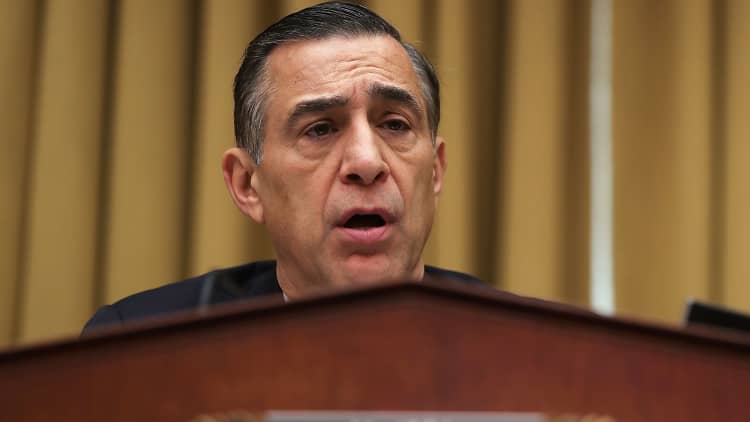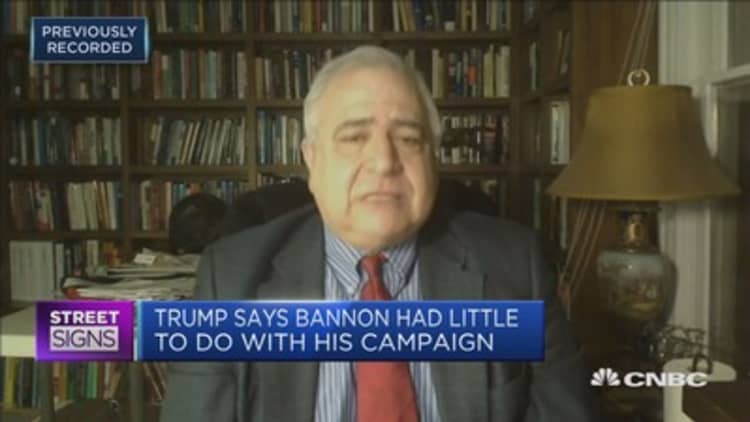
If you wonder how the war for control of Congress is going, check out the Republicans fleeing the battlefield.
On Wednesday, Rep. Darrell Issa said he won't seek re-election to a 10th term representing his San Diego-area district. On Monday, his California colleague Ed Royce said he will decline to seek a 14th term in his district outside Los Angeles.
That makes 30 Republicans so far who plan to leave the House by year-end, either to retire or seek higher office. That's twice the number of departing House Democrats — presenting a major opportunity for a minority party that needs 24 more seats to snatch back the speaker's gavel for Nancy Pelosi.
The Republican exodus stems in part from historical patterns. The party holding the White House nearly always loses seats in midterm elections.
It has been propelled further by the bombastic and divisive White House debut of President Donald Trump, who is the least-popular new president in the history of polling. Presidential popularity is a leading indicator of midterm election results.
The trend has received yet more fuel from the nature of the Republican agenda. Trump's pursuit of a wall on the Mexican border has heightened political dangers for Republicans in districts with Hispanic constituencies, as the tax-cut bill has done for those representing areas hard-hit by the reduction of state and local tax deductions.
Royce and Issa represent prime examples of Republican incumbents in the line of fire. So do other moderate-minded Republican retirees such as Charlie Dent of Pennsylvania, Ileana Ros-Lehtinen of Florida, Frank LoBiondo of New Jersey and Dave Reichert of Washington state.
To a lesser degree, the current climate has opened fresh opportunities for Democrats to recapture the Senate, as well. With Democrats needing just two more seats to make Charles Schumer of New York the majority leader, GOP Sens. Jeff Flake of Arizona and Bob Corker of Tennessee have stepped away from the fight.
None of this guarantees a Democratic-controlled House or Senate in 2019. Democrats have many more Senate seats to defend in November.
Republicans in both chambers benefit from a strong economy and surging financial markets. The lopsided partisan balance in most congressional districts makes it difficult to knock off the majority of GOP incumbents who are seeking new terms.
One signal both parties will watch closely is the decision of House Speaker Paul Ryan of Wisconsin. Some of his friends expect him friends to join the exodus himself after winning enactment of his cherished tax cut last month.
Ryan's spokeswoman said recently that "he's not going anywhere anytime soon." There remain 10 months until Election Day.
WATCH: Trump-Bannon feud may be positive for Republican incumbents



